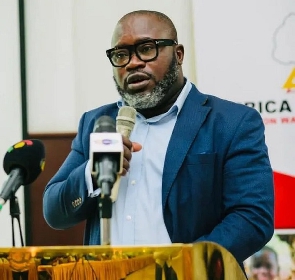Kofi Asare, Executive Director of Africa Education Watch, has said “It will take Ghana 240 years to eliminate schools under trees” if the country maintains the current rate of budgetary allocation and disbursement to the education sector.
He said while the country’s basic education sector continued to record high levels of infrastructure deficits, budgetary allocation to the education sector had been on the decline in recent years, and falling short of the global benchmark of 15 percent of the Gross Domestic Product.
He said this meant that the country would not be able to realize its target of eliminating schools under trees within the five-year target.
He said this while making a presentation on the topic: “Education Financing and Furniture Situation” at a stakeholders’ convening on the state of public basic education in the country in Tamale on Tuesday.
It was organised by School for Life and its consortium partners on the theme: “Bridging the Access and Quality Gap in Public Basic Education: The Effects of Infrastructure Deficits and Policy Implication.”
It was attended by stakeholders in education drawn from national, regional, and district levels to engender positive dialogue and inspire critical reflections that would facilitate a more concrete course of action to promote equitable quality education delivery in the country.
It is estimated that there are currently 5,000 schools under trees in the country.
Statistics from the Ministry of Education showed that with respect to desk deficits alone, by the year 2021, about 596,000 kindergartens (KG) pupils representing half of the national KG population and 1.28 million pupils in primary schools lacked desks in schools.
It showed that 425,000 pupils, representing 30% of JHS students, were without writing spaces, bringing the total number of public basic school pupils without desks to about 2.3 million.
The desk situation is worse at the primary level in the most underserved regions such as Northern, North East, Savannah, Upper East, Upper West, Bono East, and Oti Regions.
In terms of actual numbers, the Northern Region leads with 213,252 public primary school pupils without desks followed by Upper East, with 118,340, and Bono East, 86,074.
There is also a high pupil-to-classroom ratio, implying the lack of enough classrooms for the pupils resulting in congestion and classes under trees.
The situation has been attributed to poor funding as data showed that between 2014 and 2020, the share of the education sector discretionary expenditure to basic education declined from 19.2% to 10.9%
Asare called on the government to uncap the Ghana Education Trust Fund to ensure more resources towards addressing infrastructure deficits in the basic education sector.
He further called for cost-effective spending and prioritisation of spending to help address the situation.
Madam Wedad Sayibu, Director of School for Life, said, “Under our Citizen-Led Action for Educational Accountability and Responsiveness in Ghana Project and the Empowerment for Life Programme, we encountered compelling traces of inadequate or poor basic infrastructure, teacher availability gaps, and furniture deficits as challenges preventing thousands of children from going to school and learning.
Hajia Katumi Natogmah Atta, Northern Regional Director of Education, who represented the Director-General of Ghana Education Service (GES), said the GES would continue to work with all relevant stakeholders to mobilise the needed resources for infrastructure development.
Yidana Zakaria, North East Regional Minister, who read a speech on behalf of the Northern Regional Minister, said Metropolitan, Municipal, and District Assemblies had been implored to review their strategies on infrastructure at basic schools to help ameliorate the situation.
General News of Thursday, 8 June 2023
Source: GNA













